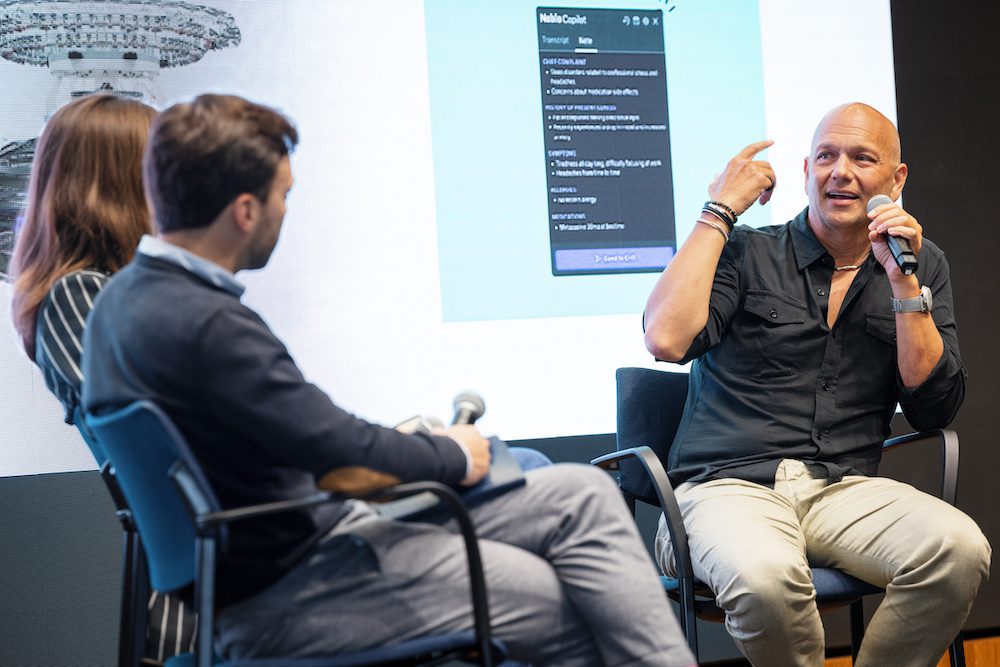
Tony Fadell, known as “father of the iPod,” speaking at Haas. Photo: Katelyn Tucker
During his time at Apple, Tony Fadell oversaw development of the first iPod and the first three editions of the iPhone.
His remarkable success didn’t stop there. After Fadell left Apple in 2010, he founded Nest Labs, known for its smart-home products, including the energy saving Nest Learning Thermostat. In 2014, Google acquired Nest for $3.2 billion, the same year that Time Magazine named Fadell among the “Most Influential People in the World.”
At a recent Dean’s Speaker Series Fadell discussed his impressive career and the importance of always being open to learning.
“To be a really great product manager, to be a really great business person, a really great visionary, you always stay a beginner,” said Fadell, who was interviewed by Fernanda Kasper Ortolan and David Bravo, both MBA 25. “You are always trying to put yourself into the shoes of somebody who’s just learning it for the first time.”
Fadell said it wasn’t always easy to question the status quo. After leaving Phillips in 1998 to work on a startup, he began thinking about a new form factor for music, which resonated from his experiences as a DJ.
‘I was a DJ at the time and I’m like, “When is it going to do music? Because I was sick of carrying all my CDs around,” he said.
But when pitching the idea for what would become the iPod, he recalled hearing a series of “No”s. Even after Apple hired him to “make iTunes on the go,” Fadell said he continued to face new obstacles.
“I literally had people trying to shut me down all the way through the iPod project,” he said. “You have investors trying to shut you down or competitors or whatever else. So, you have to fight at every single step.”
Fadell noted that staying innovative throughout his career has centered on filtering out which ideas are actually worth pursuing. Instead of chasing every great idea,” he said he now tries to figure out “which ones chase me.”
That mindset led him to found Nest, where his team launched one of the first consumer products that includes a large language model, the same type of technology behind AI like ChatGPT. While people have become more comfortable with AI since Nest’s launch, Fadell acknowledged rising concerns about the future of the technology, including its ability to “replace humans.”
“Technology is more or less neutral,” he said. Instead of worrying about AI taking over, he advised focusing on leadership and “not being scared of the tools.”
Fadell emphasized the No. 1 thing he’s learned throughout his career: “You only fail when you give up—when you don’t learn from the failure, adapt, and then try again.”
Posted in:
Topics: